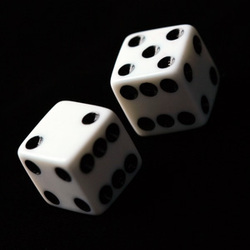Why Millennials &%#@! Love Science
Geege Schuman stashed this in Science Too
The wildly successful web publication "I F*cking Love Science" currently has over 18 million likes on Facebook. For context, Popular Science has 2.8 million likes, and Scientific American magazine has about 2 million. The publication’s founder, 25-year-old Elise Andrew, has never been affiliated with any mainstream media outlet. She launched her page in 2012, filling it with beautiful scientific images, web comics, and even original articles about the latest scientific news. "IFLS declared, with no hint of irony, that science was amazing," wrote Alexis Sobel Fitts in a recent profile in the Columbia Journalism Review," and in desperate need of a digital-age evangelist to spread the word." Andrewdescribes her role in a lower-key way: "I’m just telling people things I think are cool."
This is how most millennials feel about science—curious and awestruck. And they can’t get enough of it. They’re reading about science at their jobs and in their free time, in peer-reviewed journals or on Wikipedia. But what makes millennials’ interests different from the scientific interests of every previous generation?
http://www.theatlantic.com/education/archive/2014/10/why-millienials-love-science/382015/
Stashed in: Young Americans, Science!, LEGOS!!!, Active Users, @iflscience
That Columbia Journalism Review article is excellent...
...but I still don't believe most Millenials love science.
Likes on Facebook are cheap. How many actively read the website? Much fewer, I'd wager.
You're probably right. I wonder if the distractions of the digital / social age chip away at some of the traits that support conscientious follow-through.
From The Atlantic article: The last generation to make a disproportionate number of scientific discoveries was the G.I. generation, born between 1901 and 1924. From events like the 1939 World’s Fair and the Manhattan Project, science quickly entered the social consciousness as the best way to make life better overall. Young people in the late 1940s and 1950s were "really good at solving big things," says Howe. "They thought they could make a better world because they were optimistic, community minded, and cooperative among peers. They had a vision of the future that can be proved through science."
I think the current generation is about to make a disproportionate number of scientific discoveries.
Everything seems to be accelerating these days. Those who do science, do science very well!
So is it safe to say that Millennials as a group don't love science but they do FUCKING love science?











8:40 AM Oct 29 2014